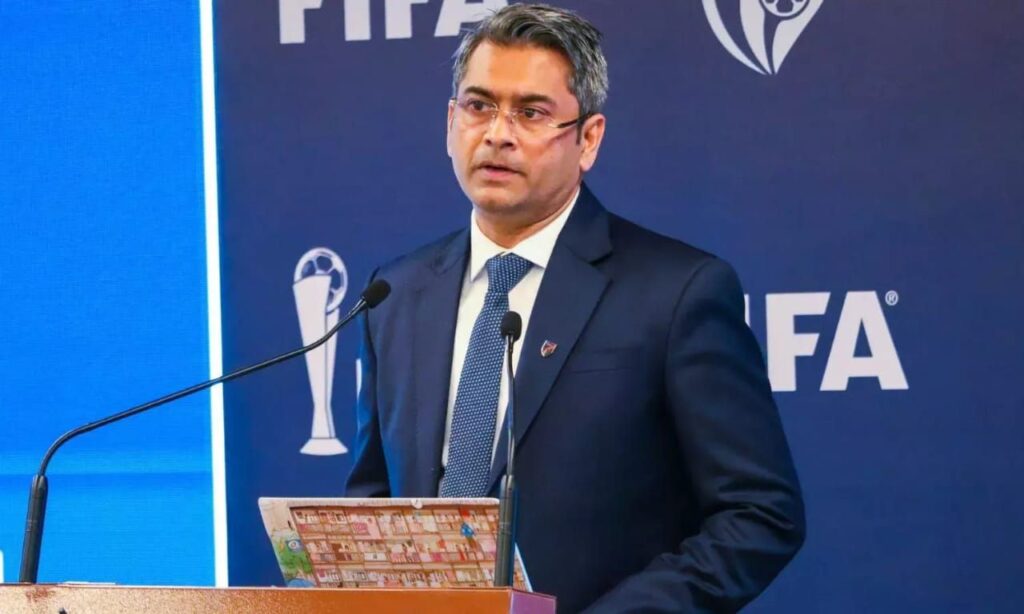
Indian football is grappling with one of its most turbulent phases in recent years. With the Indian Super League (ISL) suspended, multiple clubs halting operations, and the matter now before the Supreme Court, the sport’s future in the country looks increasingly uncertain. Yet, All India Football Federation (AIFF) president Kalyan Choubey insists the federation bears no responsibility for the crisis.
Speaking to a news agency, Choubey acknowledged the severity of the situation but placed the blame elsewhere. “We are going through a crisis. But the federation is not responsible in any way. This situation is due to some self-proclaimed reformers who are looking out for their own interests. I hope we will all overcome this situation together,” he said.
The ISL Standoff
The ISL, India’s premier football competition, was suspended on July 11 by organisers Football Sports Development Limited (FSDL), citing contractual disputes. Since then, three clubs have ceased operations and stopped paying player salaries. This has fuelled frustration within the football community, with many suggesting the AIFF could have acted sooner to address the impasse with FSDL.
Several stakeholders have questioned Choubey’s role and the federation’s willingness to intervene. Some point to the delayed activation of agreements as a missed opportunity that could have prevented the crisis.
Clubs and the Court
Earlier this month, 11 ISL clubs wrote to the AIFF urging it to draw the Supreme Court’s attention to the stalemate. Choubey, however, expressed surprise at the letter. “This was discussed with 13 clubs in the meeting on August 7. We are surprised to receive this letter within 24 hours. Such communication could have been avoided. In any case, the federation will do whatever is possible for the development and promotion of football,” he said, adding that legal advice is being sought on the matter.
Future of the ISL
When asked whether the AIFF could independently organise a competition of ISL’s stature, Choubey remained non-committal. “All options are available. However, a decision will be taken after listening to everyone’s opinions and suggestions,” he stated.
While Choubey’s comments have sparked controversy, the larger question remains: can Indian football’s stakeholders find common ground to restore stability and ensure the sport’s growth? With the ISL’s future hanging in the balance, the coming weeks will be critical for the game in India.
